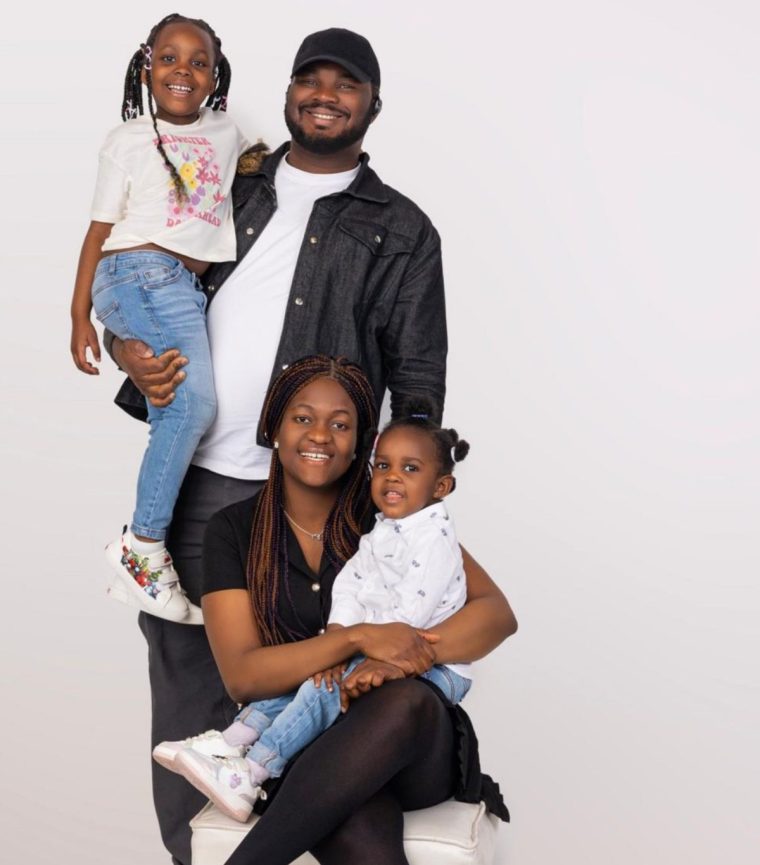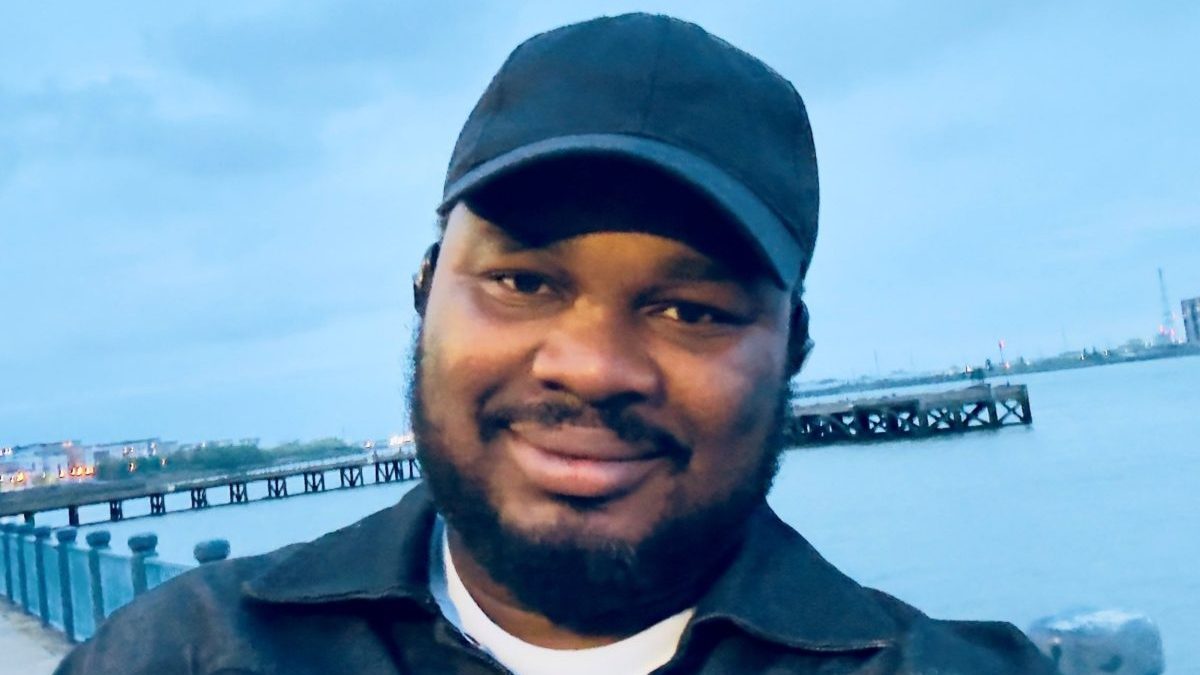In our How I Manage My Money series we aim to find out how people in the UK are spending, saving and investing money to meet their costs and achieve their goals.
This week we speak to Chigekwu Agu, 39, who lives in London with his wife and two children. Chigekwu moved from Nigeria to the UK and found it difficult to manage higher costs and build up a credit history. He thinks rental costs in London are too high and would like to buy a home in Kent.
Monthly budget
My monthly income: I work as a customer service representative at Tasty African Food, a business in London. I handle both in-person and online customer orders, manage calls, process payments and ensure customers receive the service they’ve paid for. I also help prepare traditional African dishes and pastries in the kitchen. I take home around £2,000 each month. I used to work as a support worker for people with additional needs, but recently left this role. My wife works in care and has an income coming in.
My monthly outgoings: Some of my expenses like rent, groceries and electricity are shared with my wife. My contributions are as follows: rent, £750; council tax, £130; groceries, £150; gas and electric, £45; water, £53, broadband, £50; mobile, £37; subscriptions, £20; money into savings and investments, £500; money into pension, £60; spending on things like eating out, day trips, clothes and hobbies, £100.
I grew up in Enugu, Nigeria, where life wasn’t always easy. There were ongoing safety and political problems. My wife and I had talked about the possibility of moving somewhere new and starting afresh for a long time.
The decision to leave became inevitable after we lost my mother-in-law in a tragic incident in Nigeria on her way home from work. When we tried to get support from the authorities in Nigeria, we were asked for money just to open a case. This was the moment we knew we had to look for a better life elsewhere. We came to the UK in 2023 with nothing but hope and faith, and by God’s grace, we made it.
The financial challenges we faced when we first moved to the UK were stark. We had no family here, no credit history and very little money. Getting a job and somewhere to live wasn’t easy. Landlords wanted payslips, job contracts and bank statements, none of which we had.
It is significantly more expensive to live in the UK than in Nigeria. In Nigeria, I was used to using cash to pay for everything and essentials like food are much cheaper.
In the early days, I got a job at a warehouse, while my wife found a role in care. My job was part-time, which made affording rent very difficult. Shared housing would have been complicated as we have children. We had to really beg to get a roof over our heads.
I now work as a customer service representative and the take-home pay from my job is about £2,000 a month. As well as having a full-time job, I’m getting my business, ChopNow, up and running. There are amazing African restaurants in the UK, but they are not always on the big food delivery apps. With ChopNow, I’m making African food easy to find and order from.
 Chigekwu Agu and his family moved from Nigeria and have settled in London
Chigekwu Agu and his family moved from Nigeria and have settled in London
I’ve always tried to be careful with money, but every bill felt like a mountain when we first moved to the UK. I’ve managed to build up my credit history and score via Loqbox. I also use Loqbox to help keep me disciplined with my money. I plan everything, including upcoming rental costs, school-related expenditure, groceries and bills, in advance.
I’m currently adding £500 into a separate cash savings account and investing money in my business when I can.
We’re currently renting and living in a one-bedroom flat in London. My monthly contribution to the rent is £750 per month. Having a stable place to live means everything. We have a proper home now, which is a big milestone for us.
Rental costs in London are incredibly high and continue to rise. It’s a huge challenge, particularly for working families trying to balance everyday expenses with saving and trying to set money aside for their longer-term goals.
Homeownership is something I aspire to. I’d love to settle in Kent one day. It is peaceful, family-friendly and still within reach of London. I wouldn’t mind anywhere outside of London. Looking at current market conditions, a suitable family home in Kent would cost around £350,000 to £400,000.
I’m adding £60 a month to a work pension. While I recognise that saving for later life is important, my priority now is getting ChopNow off the ground. Once my business grows I will be able to start looking at pensions more seriously. It’s very much one step at a time still.
If I’m able to retire early, then I would take that opportunity. But, I’m fully aware I need to be financially secure before I can even start considering this. I do not believe that the UK state pension would be sufficient to live on in later life, so I need to ensure I have other savings and investments in place.
Money gives you freedom and shouldn’t just be about getting all the bills paid. It gives you the power to create, give back to others and support a family. I don’t plan to chase a specific annual income.
I just want to build a business that gives me and those around me opportunities. I want to move from becoming an employee to a full-time business owner.
I hope my story shows other new arrivals that even when it feels impossible, you can make it. With patience, learning and the right tools, there is a way forward.
Want to take part in How I Manage My Money? Email money@inews.co.uk

